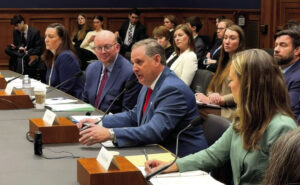How to find more time for leisure
Everyone appreciates some time to rest and relax. But few may realize just how valuable free time can be to their overall well-being.
A 2021 study from the American Psychological Association found that individuals with up to two hours of free time per day reported feeling better than people who had less free time. The sense of well-being free time provides underscores the need for leisure time.
Unfortunately, a 2016 survey from the Pew Research Center found that 12 percent of adults in the United States felt they were too busy to enjoy life. These strategies to create more leisure time can help anyone overcome by a hectic schedule or people simply looking to spend more time on recreational activities.
Audit yourself. An honest self-assessment regarding how you spend your time may reveal that you’re your own worst enemy when it comes to being busy and having no time for leisure. Utilize a journal to document how you’re spending time each day. Chances are you will uncover some timewasting behaviors or habits that can be ditched in favor of creating more leisure time.
Book your leisure time. Calendars are a part of everyday life, especially for busy professionals. Calendars may be used most often for work, but they also can be useful when trying to schedule time for leisure. Blocking off certain hours of the day to pursue leisure activities ensures open hours on a schedule won’t be filled by impromptu meetings with coworkers or other events that can take away from time to rest and relax.
Minimize distractions during the workday.
Workdays can be hectic, but many professionals succumb to distractions like the internet, text messaging with friends or family or scanning social media during a typical workday. In fact, a 2019 study by Rescue Time found that workers average just two hours and 28 minutes of productive time each workday. Increasing productivity by blocking out distractions during the workday should help professionals get more done during the workday, which in turn should free up time for leisure activities.
Make the most of a remote or hybrid working arrangement. In response to the COVID19 pandemic, many businesses were forced to shift to remote working, and many have maintained that standard or adopted a hybrid working option. Numerous studies have shown that workers’ productivity increases when they shift to remote work.
However, it’s important that individuals who work from home recognize they must walk a tightrope in order to make hybrid or remote working beneficial for their pursuit of more leisure time. Research from Ergotron found that 40 percent of workers work longer hours at home than in the office.
Though remote or hybrid work can create more space for leisure time, it’s only effective when workers make an effort to log off when the typical workday ends. In such instances, time normally spent commuting can be designated for recreational pursuits.
Leisure time is likely there for the taking, and some simple strategies can help busy professionals find more time to rest and relax.







